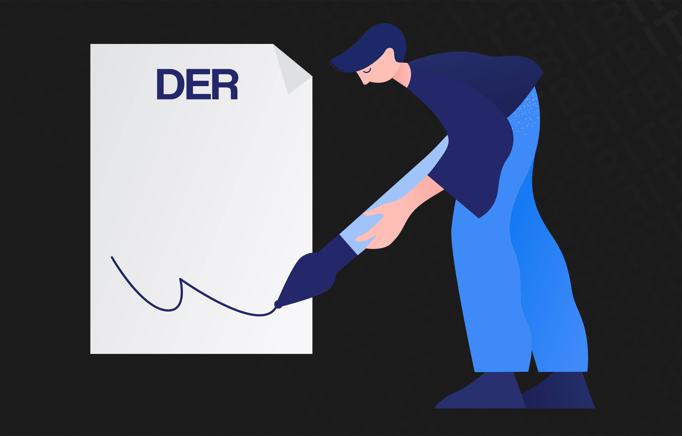What are strict der signatures
Crypto for Professionals
Other articles
The strict signatures DER (Distinguished Encoding Rules or Distinguished Encoding Rules) are a sort of encoding that is intended to assure the compatibility of a digital signature in any context, and are used to secure the validity of digital signatures in Bitcoin and cryptocurrencies.
Without a doubt, Bitcoin is highly specialized cryptographic software, as seen by rigorous DER signatures, a cryptographic implementation aimed at delivering better degrees of security in the protocol, particularly in the Bitcoin signature system.
Strict signatures, often known as DER (Distinguished Encoding Rules), are a sort of safe encryption that ensures a digital signature's compatibility in any context. It doesn't matter whether your wallet is empty. Whether it's on a computer, smartphone, or other device, the encoding will be consistent, and the resolution will be consistent from start to finish. This is critical for Bitcoin since it ensures that its digital signatures are safe under a variety of conditions.
The purpose of DER encoding is to ensure that ECDSA verifications are always valid. To do this, each signature is checked not just for formation but also for coding. To begin, ECDSA signatures are subjected to DER verification, which ensures that the signature coding is valid. Each ECDSA signature must be carefully encoded (or written) in Bitcoin, and any changes signal that the signature is untrustworthy.
In this instance, the Bitcoin protocol simply rejects the signature and prevents the Bitcoin Script connected with it from running.
We must remember that ECDSA is a deterministic digital signature system, which means that it must always yield the same signature under the same generation conditions, regardless of the criteria used. This is necessary for security and ensures that no two ECDSA signatures are identical. In the case of DER encoding, the same holds true: there is only one data stream that may correctly represent specified values for an ECDSA signature.
However, certain implementations (such as OpenSSL) are problematic and yield incorrect encodings in specific instances. As a result, ECDSA signature verifiers are frequently flexible in their acceptance criteria. This is unacceptable in Bitcoin since it causes signature verification mistakes and disrupts the network's consensus. Faced with such issues, Bitcoin developers chose to design their own DER implementation that was suited to Bitcoin's special demands, preventing other implementations from interfering with its functioning.


